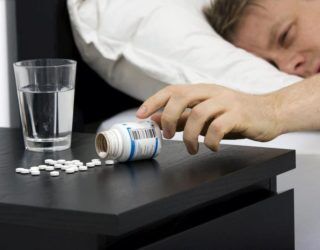The men and women who pass through our doors at Windward Way often praise the personal care we strive for with our inpatient detox for Ambien®. Don’t let the term “inpatient” scare you away—although the medically supervised staff at our Ambien detox center considers withdrawal from drugs like Ambien a serious medical condition, our facility is anything but the hospital setting you might expect. Instead, we have intentionally shaped every inch of our addiction treatment program to serve as your “hope away from home.”
Ambien Detox


Ambien Detox
Ambien® Detox Center at Windward Way
In fact, Windward Way has just the rehab center that people are seeking when they discover they are addicted to Ambien. Our intake professionals will answer the questions you have and determine whether our prescription drug detox is fitting for your unique situation. You don’t have to suffer any longer; challenge yourself to call us now and we guarantee we’ll give you the attention and professional care you deserve: (855) 491-7694.
Ambien (Zolpidem) has recently become the prescription medication most doctors prescribe for short-term insomnia. The drug is also habit-forming; abrupt discontinuation often precipitates an uncomfortable and dangerous withdrawal. Since Windward Way’s Ambien addiction rehab first begins with gently detoxifying your body from this drug, the passage into the next phase of your program for recovery will be much smoother
Often accompanying an Ambien addiction are other addiction types, all with which our experts are readily familiar. You may be afraid to embrace this new step alone. Not to worry—we will stand beside you as you restore your true identity as a man in long-term recovery. (855) 491-7694.
Ambien Detox Program: What It Requires and How Long Does It Take?
Ambien is a medication prescribed to people experiencing chronic insomnia. However, patients should not take the medication for an extended period, as it was not designed for long-term use. Even if the condition does not improve after the last recommended dosage, doctors are advised to take their patients off the medication and suggest an alternative solution.
However, recent years have seen an increase in Ambien usage, with more and more people developing a certain level of dependency on the medication. The Daily Med classifies Ambien as a non-benzodiazepine drug that has the same medical properties as benzodiazepines, but without the same dangerous and difficult to control effects.
Even though Ambien is a non-habit inducing alternative drug to other benzos, National Institutes of Health, warns that the medication still poses the same threat to causing addiction. That’s why patients must administer in low dosages with medical supervision of its effects.
Moreover, if you take the drug without the intent of curing insomnia, or if you mix it with other substances such as alcohol, you might become addicted and abuse the drug. If such is the case, you should seek the help of a drug detox center to overcome the addiction.
What Are the Common Issues Caused by Ambien Withdrawal?
Some of the most common symptoms patients might experience during an Ambien withdrawal include:
- Anxiety
- Further cravings for the drug
- Sweating
- Irritability
- Fatigue
- Nausea
- Vomiting
- Muscle cramps
- Depression
- Rebound insomnia
- Seizures
Withdrawal typically affects each patient differently. RXList classifies Ambien withdrawal symptoms into two main categories, psychological and physical, the most common one being the latter category.
When Do the Withdrawal Pains Peak?
Patients going through Ambien withdrawal typically experience the worst of the physical symptoms during the first 3-5 days. In most cases, they will disappear in about two weeks after the last Ambien dosage. However, if the patient is experiencing psychological symptoms, the pain might peak after 1-2 weeks after the last dosage.
What Are the More Serious Side Effects of Detoxing from Ambien?
Seizures are considered to be one of the more serious side effect to Ambien detoxing. Though seizures are rare and usually appear when a patient tries to quit the drug without seeking medical attention, they can be extremely dangerous and might result in death.
Certain case studies have also linked Ambien abuse to psychosis or schizophrenia. The National Center for Biotechnology Information published a case file of patients experiencing extreme aggression episodes and social isolation due to their Ambien dependency. As a result, doctors are advised to also consider a patient’s family history of mental disorders before prescribing the drug.
How Long Does It Take to Detox Fully?
The effects of Ambien don’t last for long, and the substance might be out of the body after a couple of hours of the last dose. Typically, day three and five see a considerable peak in withdrawal pains. For example, in the first 72 hours, most patients experience anxiety, hallucinations, insomnia, and nausea or vomiting.
Physical symptoms usually stop after the first week of detoxing. Still, if the patient also is presented with psychological reprecutions, then the rehabilitation period might take longer. The intensity of the withdrawal symptoms also depends on how much and for how long the patient has been abusing Ambien.
Other pre-existing medical or mental conditions also come into play. Usually, if a patient has no prior conditions, and hasn’t been taking Ambien for too long, they will stop feeling the detox side effects by the third week.
How Do Medical Detox Centers Treat Withdrawal?
Detox centers oversee a patient’s’ recovery for substance addiction. Each center has it’s own structure for the way they treat patients, but they usually include the following:
- Diagnosis and Testing
- Medical Supervision
- Medical Treatment administered by specialized medical personnel
- Counseling
- Rehabilitation
- Alternative methods combined with tradition detox treatments
First Step towards Recovery
Ambien detox is your first step towards a full recovery. Rehab centers are equipped with the necessary tools, staff, and settings to ensure a safe place for rehabilitation, and preventing relapses. If you or someone you love is suffering from an Ambien addiction, call us now and schedule an appointment.





